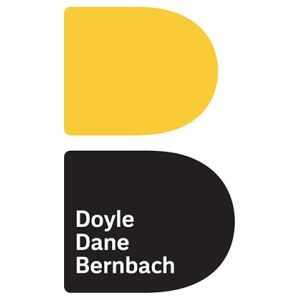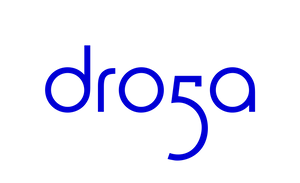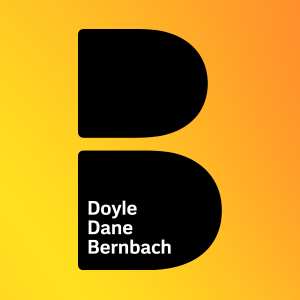
“Infinitely Relevant”: Adland Reactions to the Passing of Daniel Kahneman

Daniel Kahneman, alongside his collaborator Amos Tversky, revolutionised the way we think about how we think and was an influential figure in the world of cognitive psychology and behavioural economics. A best-selling author and Nobel prize winner, his impact was global, but in the world of advertising his ideas about fast and slow thinking found considerable purchase.
Following news of his death last week, aged 90, LBB’s Addison Capper asks strategists and behavioural experts from within the industry to share their reflections and insights on his ideas and their influence on advertising and marketing.
Orlando Wood
Chief innovation officer at System1
There were those who would frown when we first got excited about Daniel Kahneman's System 1 and System 2 idea. Of course, they would say, you realise it's only a metaphor for what's really going on in the brain. But as any advertiser knows, metaphors are magic. Metaphors illuminate a situation in ways that let you understand it on a deeper level; they are vehicles for thought – and in this case quite literally so.
Kahneman's fast and slow modes of thinking was one such metaphor. Once you grasped the idea that our conscious thinking process is a ‘lazy policeman’, mostly rubber-stamping instinctive decisions, you saw its workings everywhere. When his book came out, we sent it to our clients as a Christmas present – well, it was better than socks – and it hugely influenced our thinking about how research could be made more predictive, if it could tap into emotion and rapid decision-making.
In the wider industry, Kahneman's ideas were a paradigm shift. Concepts that were once on the fringes of research - that knowing how people felt was more important than claimed behaviour, for instance - are now widely accepted. Kahneman was an inspiration not just for his ideas but for his wisdom, tenacity and boldness of thought. I was lucky enough to see him once and was struck by his modesty and his belief that luck plays a big part in any one person’s success. In 2016 we paid him the biggest tribute we could, renaming the company System1 after his concept. Not bad for a metaphor.
Camille Gray
Communications strategy director at Droga5
Daniel Kahneman’s work is infinitely relevant. Consider the recent #girlmath phenomenon (boasting a casual 3.3 billion views on TikTok). ‘Girl math’ is really just a rebrand of the sunk-cost fallacy, inherently linked to Kahneman’s pioneering work on cognitive biases. While we like to believe we’re all logical thinkers (me: desperately trying to post-rationalize a $183 lavender flower cocotte)…Kahneman reminds of a pertinent truth: emotions rule above all.
Kahneman prompted me to see the absurdity of strategy. We are asked to confidently make decisions about human behaviour, yet often fall into the very traps of the behaviour we are studying. We observe biases, then apply our own (confirmation bias). We invest hours of work into ideas that we become less and less willing to let go of (sunk cost fallacy). We over-inflate trends because they were all over our TikTok feed this morning (availability heuristic). Ultimately, strategy’s role is to ask: what drives decisions? And Kahneman’s work provokes me to break beyond surface assumptions - to revise, to re-write and to research with intention. His quote that “at any time you should be willing to start over” is humbling for our industry, but more broadly, for society at large. In a world that increasingly celebrates hot takes and loud assumptions, consistently challenging our initial interpretations is both admirable and deeply necessary.
Humans, and most importantly, the consumers we reach with our work, are emotional and very often illogical. This is not only a brilliant place to begin (and finish) a strategic process, but also a way to reframe creative work.
Juie Shah
Group strategy director at DDB Chicago
Daniel Kahneman’s work has had a profound impact on modern marketing, shaping approaches and frameworks that underpin business, strategy, and creative solutions. Personally, his book, ‘Thinking, Fast and Slow’, has been foundational to my strategy career as it provided a deeper and actionable understanding of the two systems of human thought – System 1 (fast, intuitive, and emotional) and System 2 (slow, deliberate, and logical).
Two areas where I consistently apply his approach are understanding and executing against the consumer funnel and writing creative briefs. Depending on the complexity of the product and risk of purchase, the upper funnel is most often comprised of thinking fast, while the lower funnel involves thinking slow – equipping marketers with a nuanced understanding of consumer context to effectively move emotion and reason. Additionally, his list of biases and heuristics serve as a treasure trove for creative briefs allowing a deeper understanding of consumer behaviour and solutions to either leverage or circumvent the heuristic or bias. Kahneman's work not only enriches our understanding of human behaviour but also empowers marketers to craft more impactful strategies that provide value to both the business and the consumer.
Hannah Loeff
Group planning director at Grey New York
I owe a hefty debt to Daniel Kahneman. His work, which illuminated the subconscious processes that impact decision-making, gave us a roadmap for understanding consumer behaviour and the key to unlocking it for a brand’s benefit.
But more importantly, his theories have saved my proverbial bacon on numerous occasions. I’ve used them as ciphers to crack enigmatic briefs and to keep bold ideas alive in the face of nervous clients. They’ve helped me craft messaging that speaks to both people’s rational and emotional sensibilities and design market research with far more meaningful results.
While most brand strategists don’t have the benefit of studying a formal curriculum in an academic setting, Kahneman’s ‘Thinking, Fast and Slow,’ should be required reading. A few of my most dog-eared lessons from his book include the following revelations:
When it comes to the vast majority of purchasing decisions, our gut dominates our head. That’s why ads that make people feel something memorable are often more persuasive than logical appeals.
At times, it’s not about what you say but about how you say it. The framing effect demonstrates that the same information presented differently leads to different preferences and choices. It explains why we’re more likely to reach for a sweet treat that’s 90% fat-free than one that’s 10% fat.
You can make people believe almost anything through the act of frequent repetition because familiarity is not easily distinguishable from truth. And the more people see something, the more they tend to like it.
Juan Isaza
Chief strategy officer at DDB Latina
Advertisers must hold Daniel Kahneman in high esteem. Those of us who believe in the power of creativity, the kind that can change behaviours, make someone pay more for the brand they love, and that which moves people with emotion rather than reason. Kahneman, with his work, swiftly debunked all those obsessed with seeing consumers as rational machines.
Kahneman, with much of his work, validated the vision of Bill Bernbach who, 70 years ago, already doubted formulas because he knew that creativity was an art, not a science. He knew that the connection with human beings is made through their instincts and compulsions, not through rational thought. Those of us who faithfully follow this vision will always be grateful to Kahneman for scientifically proving the power of emotion and intuition in any act of purchase.
To strategic planners, in particular, Kahneman gifted us the idea of behavioural economics, and with that, he taught us to see consumer behaviour with new eyes. Not the eyes of algorithms or attribution models, but with the eyes of the human being.

















